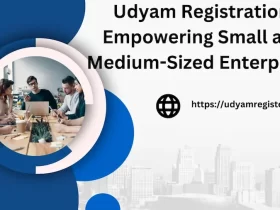What is a Credit card, and what does one use it for? Similar to a loan, a Credit card allows you to pay for things bought online/ offline without the usage of cash. Along with a 16-digit number, it consists of the expiry date, name of the holder and the logo of the Visa/ Mastercard. The back of the Credit card also includes the magnetic strip and CVV number.
If you are making an online transaction, click the ‘checkout’ option. After which, you will have to fill in your details along with a bunch of card options on the left-hand side. Once that is done, you will receive an OTP, after which your order will be complete. Using a Credit card is not a tedious process if you make proper use of it.
Up till now, we know the contents that come on the Credit card and the usage. Let us have a look at the procedures and terms that come along with the same,
Interest
When you make use of a Credit card, you need to pay an interest amount. But, this only applies if you default the payment, as mentioned on the bill. If you leave the pending amount, you will be charged with interest. This works as the ‘penalty.’ The amount on the interest changes every month. For instance, if you have an interest amount of 3% per month, it will amount to 36% on an annual basis.
Limit
A credit card has an upper limit, after which you cannot spend. Many times, you might have found your card being rejected or seen it happen. That is because after the upper limit has been exceeded, your payment will be rejected if you try to use it after. The Credit card type, income and other debts are some of the factors that relate to the limit.
Billing
You have a fixed period until which you can make payments. After the period gets over, you will receive the bill. Now, if you spend enough at the beginning of the cycle, there will be room for a longer credit period. This will give you a longer period to pay for transactions.
Minimal pay
Once you receive the Credit card bill, there is a minimum amount that you will have to pay. If you default it, get ready to pay the penalty.
Balance
This term refers to the amount you have spent on the Credit card, but have failed to pay back.
Now that you have a clearer picture on the terminologies let us dive into the rules you will have to follow,
Have an understanding
Like banks perform a check on your income and other factors before they approve the loan sanction, the similar function applies for Credit Cards. Only once you meet the criteria, the bank will decide on whether the ‘line of credit’ needs an extension or not.
Be timely
Don’t you get an electricity bill every month? Apply the same logic for Credit Card bills as well. Statement balance, Current balance, Minimum payment and the available credit are some factors associated with Credit Card bills. The crucial factor with bills is to pay them on time. Do not wait for a ‘red flag’ to sway around your head. Instead, cater some responsibility towards the same.
Set up an alarm or turn on notifications to remind yourself and ensure on-time payment. A tip to follow and refrain from missing payments would be to allocate payments on an automatic mode of withdrawal from your account, monthly.
Pay the entire amount
The Average Percentage Rates of Credit Cards is 17%. Due to the ‘grace period,’ there are no interest rates levied.
Keep it low
The Credit Card issuer is likely to report your behaviour to the three major credit card bureaus. Based on that information, they will draft reports to generate your Credit card scores. Referring to the ‘credit utilization ratio,’ it implies that you will be able to pay off your balance every month.
Monitor
It is easy to view your expenditure on a monthly and yearly basis through Credit cards. You do not even need a specific tool to track your spendings. The Credit Card issuers will issue a year-end report with information. You must also consider keeping a check on your bill, in case of any fraud committed.
Rewards
By using the Credit Card, you have the chance of earning credits, either in the form of points or cash back. You will earn a higher reward if your credit score is high. Owing to the ‘signup bonus,’ you need to make sure that you spend within a limit.
Given are the tips and rules for you to follow, the choice to follow is yours.











Leave a Reply